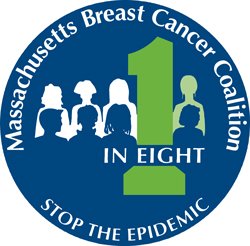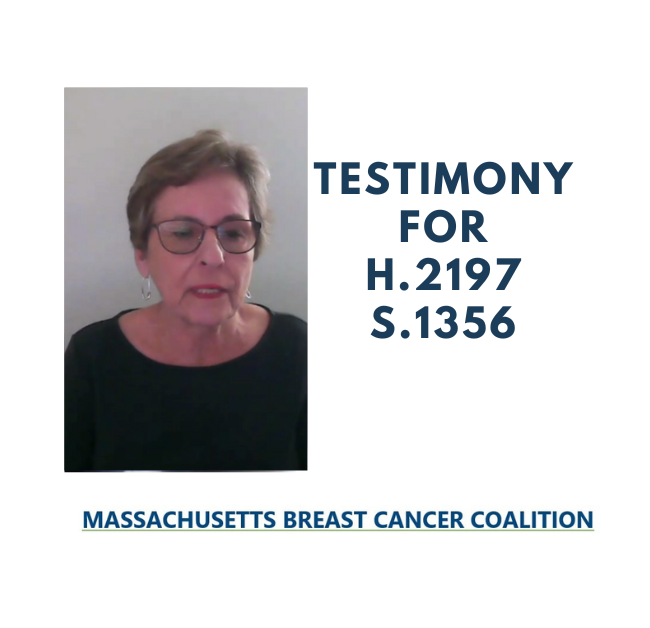On June 21, Cheryl Osimo, MBCC’s Executive Director, testified before the Joint Committee on Public Health in support of An Act to Protect Massachusetts Public Health from PFAS (H.2197/S.1356).
Click HERE to learn more about the An Act to Protect Massachusetts Public Health from PFAS and to find a letter template that you can use to contact your legislator in support of this proposed legislation.
To view the full recording click HERE.
Good morning,
My name is Cheryl Osimo and I am the Executive Director of the Massachusetts Breast Cancer Coalition as well as the Co-Founder and Cape Coordinator of MBCC’s sister organization, Silent Spring Institute.
I am here today on behalf of Massachusetts Breast Cancer Coalition to urge you to pass “An Act to Protect Massachusetts Public Health from PFAS” (H.2197/S.1356).
I would like to mention that I am joined by a graduate intern here at MBCC named Sura Hassoun who attends Massachusetts College of Pharmacy and Health Sciences and who will also be providing testimony in support of this act.
Reducing exposures to PFAS is a top priority for MBCC. Scientific studies suggest that PFAS may harm many different systems in the body. PFAS chemicals have been linked to a wide range of health effects including immune system toxicity, elevated cholesterol, developmental effects including altered mammary gland development, effects on the thyroid and liver, and increased likelihood of developing cancer. MBCC is especially concerned about how exposure to these chemicals can alter mammary gland development, a sign that they may increase the risk of breast cancer later in life.
PFAS in products don’t stay in products, so the widespread use of PFAS in consumer products such as cookware, personal care products, furniture, and food packaging adds to exposures to these toxic chemicals among Massachusetts residents. This is especially concerning for children because the developing bodies of children are more sensitive to harmful chemical exposures. In limited cases, the use of PFAS may be considered essential for safety or health reasons, but in consumer products like upholstery, dental floss, cosmetics and food packaging, the use of PFAS is non-essential. Disposal and general usage of PFAS are contaminating public water supplies and private wells, as directly exposing consumers who buy and use these products. Once PFAS are created, they are incredibly resistant to any sort of degradation, so they stay in the environment for long periods of time.
This bill will go a long way towards “turning off the tap” on the production of new PFAS and addressing existing contamination in order to protect the health of Massachusetts residents from the ill-effects of PFAS. Passing this bill will not only protect residents in our state, but also will establish Massachusetts as a national leader in protecting the health of our children and future generations.
Cheryl Osimo, Executive Director of Massachusetts Breast Cancer Coalition (MBCC)

